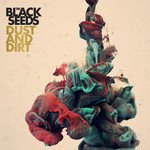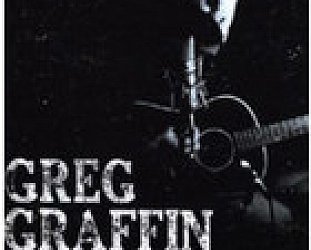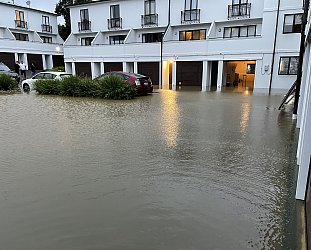Graham Reid | | 1 min read
Black Seeds: Loose Cartilage

Driving away from the recent Womad I said to my wife I hoped there might be a two year moratorium on reggae rhythms, it is just such an easy default position for so many bands and guaranteed to get people up having a good time.
Nothing wrong with a good time of course, but the loping rhythm sometimes seem all bands need to do . . . and it gets kinda dull and obvious when one band after another adopt the same. Gee, even the Solomon Island boys with their huge pan flutes and bamboo long drums flipped back to a reggae groove . . . and sho' 'nuff people got to their feet to dance.
And I say this as someone who loves reggae. But these days whenever I see a band with more than six people on stage -- especially a Kiwi band -- my heart sinks as I wait for the familar to be presented all over again.
And so, the massive-selling Black Seeds who are to be counted in the premier league when it comes to reggae rhythms and good times?
Well, this CD arrived shortly after I got back from Womad so . . .
However, it's very pleasing to report that right from the opener, the quiet and rather surreptitious Out of Light, this 13-song collection rarely goes for the obvious.
Yes, the second song -- the title track -- has The Lope. But with falsetto vocals, a trickle of keyboards and a sensibility which infused the late Seventies style, this one neatly sidesteps the obvious. The first single Pippy Pip and Love Me Now have the lightness of touch which Katchafire brought to their early originals, and Wide Open has a muted roll to it which is instantly hypnotic and hints at a more pop and light Salmonella Dub (helped by a very cool guitar solo and the dubby production).
They also shake things up with the guitar trash'n'twang intro of Loose Cartilage -- before it hits a funky reggae groove with bubbling organ and real summertime feel. Not out of place when Austin Powers goes to groovy Jamaica.
Yes, of course The Lope is everywhere (The Bend and and echoed Gabriel's Strut Dub are bound to be a crowd pleasers, Frostbite does nothing for me despite its almost drawling alt.rock vocal) but there is subtlety and nuance throughout and Black Seeds reference themselves in the broadest -- not the narrowest, as some bands do -- reading of reggae culture and rhythms.
And there's as much of the spirit of Stevie Wonder and funk here as there is a Jamaican Sunsplash. That's a good thing.
From lovers rock and deep roots to more edgy styles with funk-rock tendencies (Cracks in our Crown), and with songs which actually say something other than the usual litany of Rasta cliches, make this a pretty cool album to get me over that post-Womad feeling.
Might put a moratorium on that moratorium for a wee while yet.
Like the sound of this? Then check out this.





post a comment